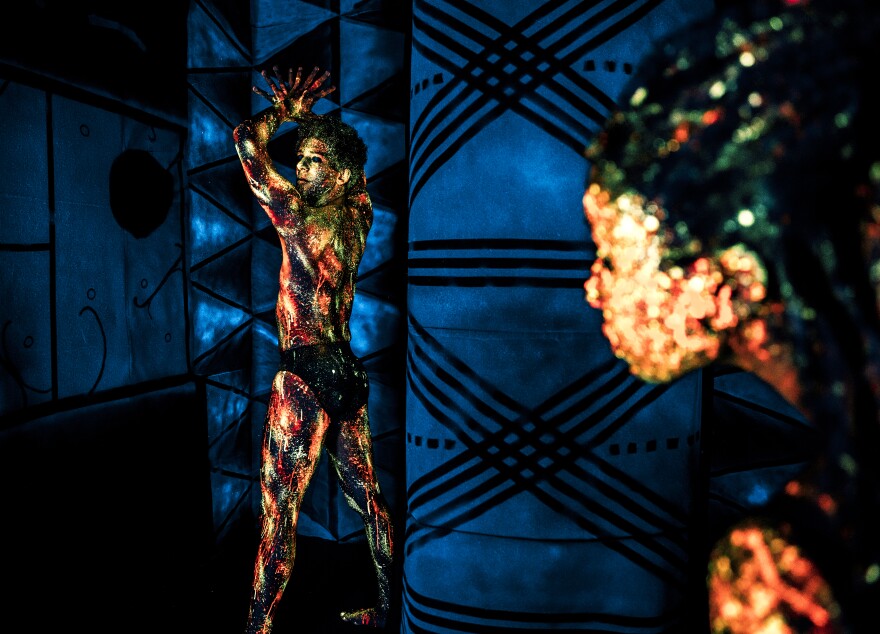While exploring his African roots, Nigerian-Swedish artist Mikael Owunna discovered that even many of his family members in Nigeria had never heard some of the stories that might be considered foundational to their culture.

Take the tale he and co-director Marques Redd tell in “Obi Mbu (The Primordial House): An Igbo Creation Myth,” their 30-minute experimental dance film making its Pittsburgh premiere Fri., Feb. 25, at the Kelly Strayhorn Theater.
The story concerns the male deity Chukwu and the female deity Eke-Nnechukwu, whose relationship goes from unity in the blackness of space to a state of discord and separation that brings the world into existence. The two characters are played, wordlessly, by Corey Bourbonniere and Victoria Watford, two Pittsburgh Ballet Theatre dancers who – in photographer Owunna’s signature style – are adorned with streaks of body paint and photographed under ultraviolet light so as to suggest cosmic beings.
Owunna, who grew up in Pittsburgh, is the son of a Nigerian-Swedish mother and Nigerian father, and learned of this creation story through research, some of it conducted with Redd, an independent scholar based in Pittsburgh. But he discovered that for many Igbo people in Nigeria, colonization and other factors had erased much knowledge of traditional belief systems. That loss was further confirmed in a moving episode that followed the film’s world premiere, in September, at ClampArt gallery, in New York City.
“After the screening, an Igbo woman from Nigeria came up to me and she was almost moved to tears, and told me how meaningful it was for her to see and also learn her creation story for the first time,” said Owunna.

Owunna, a photographer with a growing international profile, began the film as pandemic project – a COVID-safe way to transition from still imagery to live performance. “Obi Mbu” was shot entirely in one small room in his Uptown studio, with movement direction by Ursula Payne, and sound design by Herman Pearl, aka Soy Sos. The project was supported by the Advancing Black Arts in Pittsburgh Grants Program, a partnership of The Pittsburgh Foundation and The Heinz Endowments.
“Obi Mbu” has no dialogue, with just a bit of on-screen text to orient viewers. “We wanted the expressivity of the movement, of the art, of the images that you see on the walls of the set to really push the story forward,” said Redd.
Since that premiere, in New York, the film has also screened in Los Angeles, and Raleigh, North Carolina. It was all part of a big year for Owunna, who also did his first public artwork, right here in Pittsburgh – including a permanent, mural-sized photo Downtown – and his first solo exhibition, in New York.
The Pittsburgh premiere is 7 p.m. Fri., Feb 25. It’s followed by a panel discussion featuring the creative team.
Admission is $10 to $25 on a “pay what moves you” sliding scale. More information is here.





